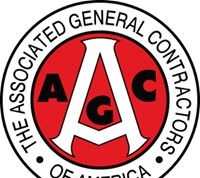WASHINGTON, D.C. – April 8, 2013 – (RealEstateRama) — In a kickoff celebration of “Fair Housing Month,” the US Department of Housing and Urban Development (HUD) this week honored some of the plaintiffs in the historic settlement of a 17-year-old Baltimore housing desegregation case, an agreement that empowered public housing tenants from high poverty neighborhoods to relocate to “opportunity” neighborhoods in the city or suburbs.
At a ceremony on Wednesday, several families who had moved as a result of the Thompson et al. v. HUD case were in the spotlight along with HUD Secretary Shaun Donovan. In the lawsuit, filed in the 1990s, Federal Judge Marvin J. Garbis agreed that thousands of African American families had been locked into areas of concentrated poverty in Baltimore. When the Obama Administration arrived, settlement talks began, and the case was finally settled last year.
Philip Tegeler, president of the Poverty & Race Research Action Council, said the plaintiff’s stories underscore the importance of assisting poor and disadvantaged families in moving to thriving communities away from the violence and dangers often found in public housing projects that government policies historically haven’t allowed them to escape from.
“Some of the stories we have heard are incredible,” said Tegeler. “This type of program isn’t for everyone, but being able to move to better neighborhoods has given many families and children hope for the future. Their lives have changed, their children are flourishing. This demonstrates why advocating for fair housing policies and ending segregated housing patterns needs to be a national priority so that more poor families can have this kind of choice.”
The settlement of the Thompson case included several significant provisions that advance fair housing. An online housing locator will list public and affordable housing options; incentives are being provided for housing developers; and 2,400 families in high poverty areas will be able to move over the next six years. In addition, a Housing Mobility Program, which was started in 2003, will continue. The Thompson case was originally filed by the Maryland ACLU, and the NAACP Legal Defense Fund joined the case in 2005.
****
Nicole Smith moved from a segregated neighborhood in Baltimore to Howard County, a wealthy, diverse community outside the city. She had lived in lived three different public housing projects as a child – Cherry Hill, Murphy Homes and Westport. She and her mother later purchased a house in a struggling neighborhood, but even though they both had fulltime jobs, they lost the house in a foreclosure.
“My name finally came to the top of the public housing waiting list in 2007,” Smith said.
“I knew what to expect in public housing: drugs, violence, crime and poor housing. The Thompson voucher, on the other hand, would give me an opportunity to move to neighborhoods that I would not otherwise have access to…it provided a way out for my 11 year-old son and me.”
She said counselling helped her credit improve and she was able to find a home in Columbia, Maryland. “I truly feel like a part of the community,” Smith said. “After moving through the program, I was able to get a job working for Howard County schools in their Before and After Care program and was just promoted to Assistant Director. I also enrolled in Howard County Community College and I am studying early childhood education. I hope to be able to go on to receive a bachelor’s degree in order to become an elementary school teacher.”
She said the move to Columbia made this possible.
“In the city, I did not want my son to play outside, he didn’t have many friends and he struggled in school,” Smith said. “Here, he is doing very well in school and our neighbors are welcoming — often picking him up after school while I’m working and arranging play dates and carpools. On his birthday, for the first time in his life, I was able to give him a birthday party at a local park. So many kids and parents came from the neighborhood and from his school to show their support for him. It was very moving to see how many friends he had of all different colors and cultures. The feeling of love and support from a diverse community is what fair housing is all about. I hope all people will be able to experience it one day.”
****
Sabrina Oliver now lives in Anne Arundel County, Maryland. She said the Thompson v. HUD settlement dramatically changed her life, and the lives of her two children. “For me, fair housing is about the hope of a better future,” she said.
Before receiving a voucher that allowed her to move, Oliver’s 9 year-old daughter suffered from a severe form of asthma that prevented her from doing most types of physical activity. When they lived in Edmondson Village in West Baltimore, her daughter was hospitalized as doctors tried to get her asthma under control. Oliver acknowledged that she also had struggles with debilitating depression and received disability benefits.
“I wanted to get out because of the killings,” she said. “I wanted a better life for my children and myself. I signed up for the (mobility) program as soon as I learned about it, and what struck me was how well I was treated. The counselors were wonderful and helpful and I knew that they were available to answer questions if I had any. The process was pretty straightforward; I went to the workshops, saved for the security deposit, and set out to start a new life. I first moved to Parkville in Baltimore County, then to Orchard Beach in Anne Arundel County.”
She said that during the three years in Parkville, her daughter’s health steadily improved and she hasn’t had any symptoms since the left Edmondson Village. She said her son, 16, had always struggled in school. “When we lived in Edmondson Village, I tried everything, but nothing helped,” she said. “The schools were failing him. I chose Anne Arundel County because I heard that they have excellent schools. Now, my son is doing wonderfully and just made the honor roll for the first time in his life.”
She said that her depression “feels like it’s gone” and she is no longer on disability.
“My new environment has motivated me to want something better for my kids and myself,” Oliver said. “I was able to find work as a patient home care technician and I’ve gone back to school, at Anne Arundel Community College, to become a drug and alcohol counselor. I chose this profession because I think that it is important to give back to communities that are less fortunate. This is what motivated me to join the board of the Baltimore Regional Housing Partnership, the organization that is responsible for the Thompson voucher mobility program.
“My hope is that other families will have the same opportunities that I have been given to reach for a better life. I would like to say thank you to Secretary Donovan and everyone at HUD who worked to make the Thompson program possible.”
****
Michelle Green lives in Baltimore County. She said the Thompson settlement “may have saved my sons’ lives.” She has four boys. She lived with her oldest son in public housing in Lexington Terrace and many of her family members lived in the same neighborhood.
“My sister and I often worried about our sons,” she said. “We understood how difficult it is for decent boys who are trying to do the right thing to avoid violence in the neighborhood. Unfortunately, our fears were realized in the worst way when my nephew was killed while walking home from our local convenience store. The robbers thought that he had money. He never got to finish high school; he never had a chance. I wanted to give my son a chance to live and a chance to graduate from high school, which was very rare in my neighborhood.”
Green said the voucher she received from the case gave her family a chance. She said it gave her the opportunity to move to a neighborhood that was safe.
“As soon as I got my voucher, I moved to a wonderful neighborhood in Columbia,” she said. “My boys received a warm welcome and felt really safe there. Thankfully, my two oldest sons attended middle school and high school in Columbia [MD]. They were both very active in school sports, and the coaches, the teachers and the students loved them. The day that my oldest son graduated from high school was the proudest moment of my life. He is doing well and is getting licensed to be a forklift operator.”
Green said her second son also graduated from high school and is planning to apply to colleges.
“They have made it past the most difficult age and are productive members of society,” she said. “And they are safe. Recently, I moved from Columbia to Baltimore County to be closer to the city to care for my grandmother. But I would never move back to Lexington Terrace. My two youngest sons are doing well in our new neighborhood in Catonsville. They get good grades, participate in sports, and are both determined to go to college. The neighbors love them, and they even earn extra money by mowing the neighbors’ lawns. I don’t worry about my kids’ safety anymore. I am less stressed and am able to go to work and even went back to school. I support the Thompson settlement because I believe that it can save lives.”
****
Media Contact:
Michael K. Frisby * (202) 625-4328 *
About PRRAC The Poverty & Race Research Action Council (PRRAC) is a civil rights policy organization convened by major civil rights, civil liberties, and anti-poverty groups in 1989-90. PRRAC’s primary mission is to help connect advocates with social scientists working on race and poverty issues, and to promote a research-based advocacy strategy on structural inequality issues. PRRAC sponsors social science research, provides technical assistance, and convenes advocates and researchers around particular race and poverty issues. Visit PRRAC online at www.prrac.org.














